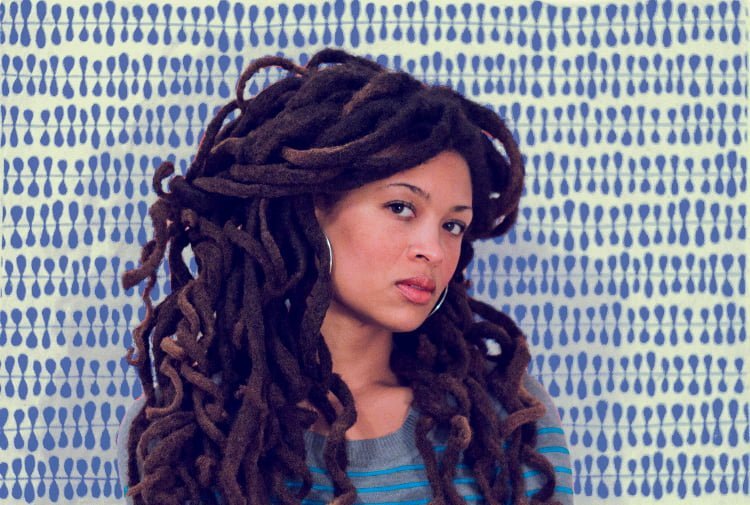
Having recently appeared on ‘Later…’, could this self-effacing purveyor of refreshingly raw ‘American roots music’ be America’s next superstar singer-songwriter?
![]() t was only a month or so ago that a track landed in Songwriting‘s inbox called Workin’ Woman Blues. It sounded like a stew of blues, country and bluegrass cooked up by Carole King, served with a dash of soul and accompanied by the kind of honest, heartfelt lyrics you associate with the likes of Janis Joplin or Billie Holliday.
t was only a month or so ago that a track landed in Songwriting‘s inbox called Workin’ Woman Blues. It sounded like a stew of blues, country and bluegrass cooked up by Carole King, served with a dash of soul and accompanied by the kind of honest, heartfelt lyrics you associate with the likes of Janis Joplin or Billie Holliday.
Here, we felt, was a young songwriter with something to say, and with an original way of saying it – the exact opposite of today’s stage school manufactured pop tarts with their lyrics-by-committee, AutoTuned vocals and grating, over-compressed synth riffs.
We were immediately on the phone requesting an interview, and it seems we weren’t the only ones to be impressed. She’s already signed to Rob Da Bank’s Sunday Best label, and her forthcoming long-player has been co-produced by Dan Auerbach from Black Keys. A few weeks later – a couple of days before our interview took place – the young singer-songwriter in question also made her debut appearance on Later… with Jools Holland.
We say ‘debut’ appearance because we’ve got the feeling it won’t be the last, so allow us to introduce… Valerie June.
As your name will be new to a lot of Songwriting readers, could you start by telling us a little bit about your background, and how you got into writing songs and making music?
I grew up in Tennessee, and I’ve been writing songs since I was a little girl, I guess from when I was about six or something. I’m not saying they were great songs or anything! But I’d always be coming up with melodies and lyrics, songs about nature and trees and frogs and rain and stuff like that. I didn’t really start playing guitar till I was in my early 20s, and then someone gave me a banjo for Christmas, and someone else gave me a ukelele for my birthday so now I play all three.
That seems quite late to start playing, if you’d already been writing songs since you were young?
Yeah it was kinda late I guess, but see I already had a band behind me, and it was only when the band broke up that I thought, ‘Right, I gotta learn how to play’ and started figuring out, y’know, which chords go with my voice and stuff like that. Right away I was learning how to play my own songs – I only even attempted playing anyone else’s songs really, really recently.
Do any of those childhood songs survive? Any plans to record any of them?
Sadly not, because in my teens we had a house fire and lost everything. There are no baby pictures of me either, everything went in the fire – we had to live in a motel for two weeks until some church people took us in.
So what happened to that first band?
That band was called Bella Sun. We formed in Memphis and we never got much beyond Memphis… we had a pretty good local following that came to all the shows, but not much beyond that, really. And we broke up because it wasn’t really the music I wanted to do… I learned a lot doing it, for sure, but it was a soul band, I was trying to sing soul, and I can’t really do that.
To sing soul in the traditional sense you have to sing in a certain way, and that’s just not me… I have quite an unusual voice, and not everyone’s going to like it. Some people in the band didn’t like it, and so I was trying to change it and then I thought, you know what? Music’s supposed to be fun, and it would be a lot more fun to work with people who DO like my voice! So I went from an environment where people were trying to change me, to one where I could be myself more.
In what way would you say your voice is ‘unusual’?
Well, it’s a long way from perfect, but that’s okay because I’ve never been drawn to singers with perfect voices – they sound beautiful, sure, but it very quickly just gets boring. I’m drawn to singers where there’s a rawness, a grittiness… I like the oddities and imperfections in people’s voices.
 Singers such as…?
Singers such as…?Oh, lots! Stevie Nicks, Dolly Parton, Karen Dalton, Otis Redding, Sam Cooke, Kitty Wells, Nina Simone. Especially Nina Simone! When I really want to FEEL something, I’ll listen to a Nina Simone record.
And if those are singers who’ve influenced you, what about songwriters?
I’d say Townes Van Zandt, Bob Dylan and Leonard Cohen… those are three big influences that spring to mind. When they sing, I can see the song unfolding before my eyes.
All male songwriters, interestingly…
Well, a lot of the female singers I love didn’t write much of their own material! But you’re right, I’ve named three men but there have been a lot of great female songwriters as well. Carole King is definitely a big influence, Joan Baez, Tracy Chapman…
With such diverse influences, how would you describe the music you make now?
Roots music is the term I use. American roots music. There’s country in there, blues, folk, soul… it’s music from the heart, basically. I love American roots music, all of it – and music from the south especially. Growing up in Tennessee, there are so many great artists from Tennessee that went on to influence music all over the world, so growing up and hearing those artists on the radio was undoubtedly a big influence on me.
You’ve spoken elsewhere about your background… in particular we read a quote where you said something like, “where I’m from colour matters, but when you start playing music it doesn’t matter”. Care to tell us about that?
Well, in Tennessee there are always lines between black and white. Don’t get me wrong, it’s eased a lot but it’s still always there to some extent. But what I found is, if you’re performing and it’s a good song then they all like it… black and white doesn’t come into it as much. That’s why music is so magical for me… it’s a way for people to come together.
And again, that’s in the Tennessee heritage… we had Stax Records, which was one of the first record labels to record bands of mixed race. And Candi Staton’s from Tennessee and she was on the Grand Ole Opry once! So yes, music’s great for breaking down barriers, although that said I’ve never experienced any outright hostility personally, in terms of “you shouldn’t be singing white music” or anything. It’s more just that people don’t necessarily expect it – one woman who’d heard my songs but never seen me said she was expecting an old white granny!
Let’s talk a little more about your own songwriting. On your forthcoming album, we gather you’ve had a few different collaborators?
Yeah, I’d say I wrote about 50 per cent of the album. Pretty much all the lyrics are mine, except where someone else might have suggested a line or a phrase… some of the music I wrote, but a lot of it I wrote in collaboration with someone else. How it tends to happen is, I’ll start writing a song and I’ll come up with what I call a ‘skeleton’. Then I’ll take that skeleton to a songwriting session with someone else and they’ll help me flesh it out.
It’s like they’ve got the other piece of the puzzle that I didn’t have, and then when you put those two pieces together, you get the whole picture. I actually do more songwriting alone, but that’s the reason I love writing with other people as well. Plus you get to learn new things, new techniques and tricks and approaches that you might not have thought of.
When you’re writing, is there a particular process you follow, or a place you like to write? Or is it a case of “as and when”?
Generally speaking, I’ll just be doing something else – doing the grocery shopping or driving the car – and I’ll hear a voice in my head singing to me. And then I have to stop what I’m doing and write it down before I forget it! So usually it’s the lyrics and melody that come first. And when they do… it’s like a spasm, it just hits me. If I’m driving, I’ll have to pull over right there and then.
I use the voice memo on my iPhone a LOT, let’s put it that way! I always carry a notebook, too. And I keep a journal because sometimes you might just think “that’s a nice word” or “that’s an interesting idea” and I’ll write it down in there to remind me, and who knows, it might become a song six months later.
[cc_blockquote_right] I COULDN’T SAY WHERE SONGS COME FROM BUT I KNOW IT FEELS LIKE A BEAUTIFUL PLACE [/cc_blockquote_right]The way you speak of songwriting… it’s almost as if it comes from outside of you. Do you see it as in some way a spiritual or religious process?
I wouldn’t say it’s religious but I am a spiritual person and yes, I’d say it’s similar to the idea of channelling… I think a lot of musicians do that. It’s like an energy. I couldn’t really say where songs come from but I know it feels like a beautiful place, somewhere full of light.
Workin’ Woman Blues is out as a single on Sunday Best on November 17, and you can watch the Later… appearance below. Valerie June’s debut album Pushin’ Against A Stone will follow in early 2013.
Interview by Russell Deeks


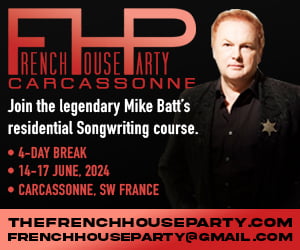





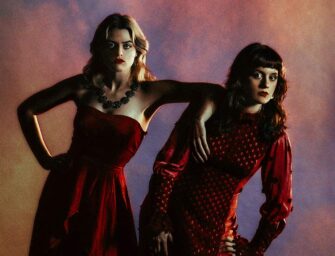
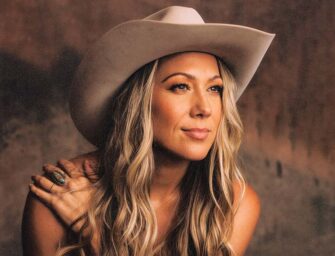
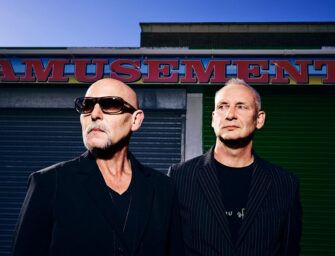
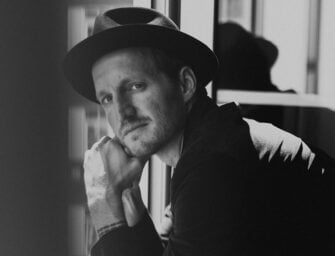
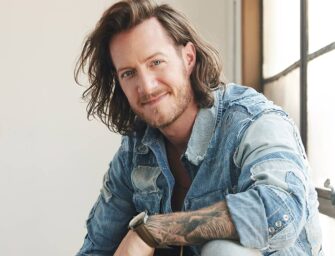




















Related Articles